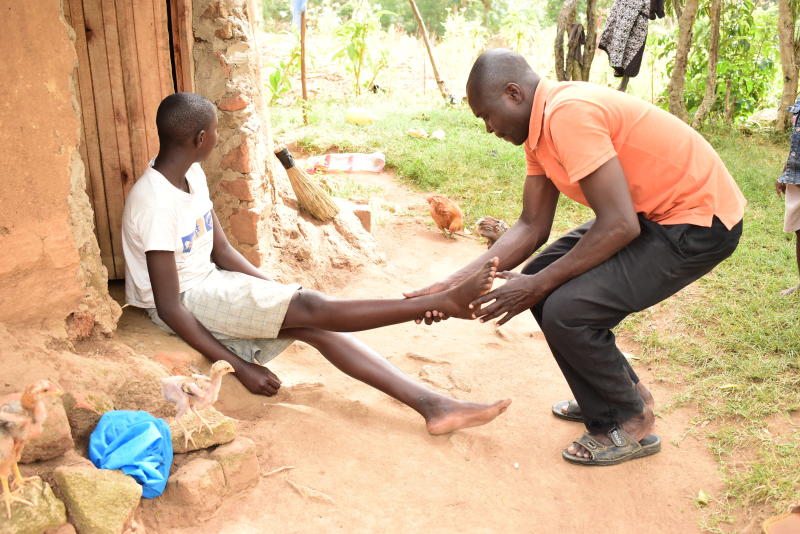×
The Standard e-Paper
Smart Minds Choose Us

Cate Ateng’e, 13, sits pensively on bare ground facing the direction of the grave outside their ramshackle house at Osajai village in Teso North Constituency, Busia County.
Together with her four siblings, they are having lunch – ugali with omena (fingerlings fish) stew, but you can easily tell from their looks that they are malnourished.